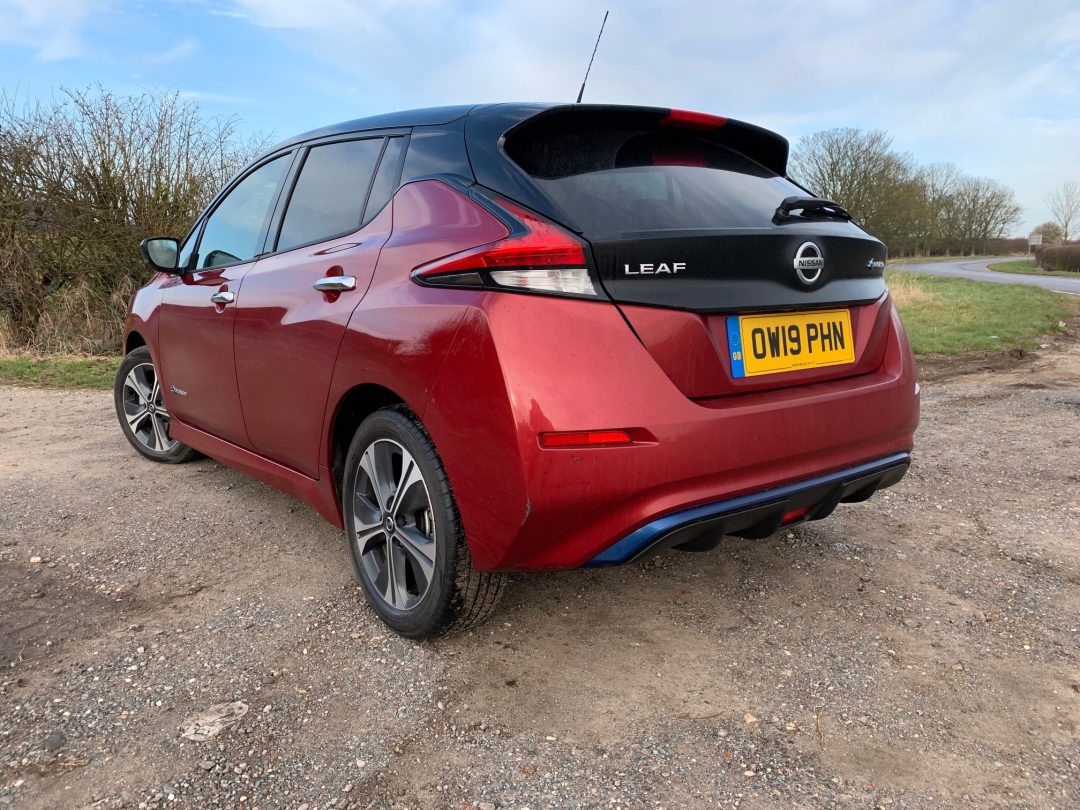Nissan Leaf EV road test review: Want to know what it’s really like to live with an electric car? Read on…
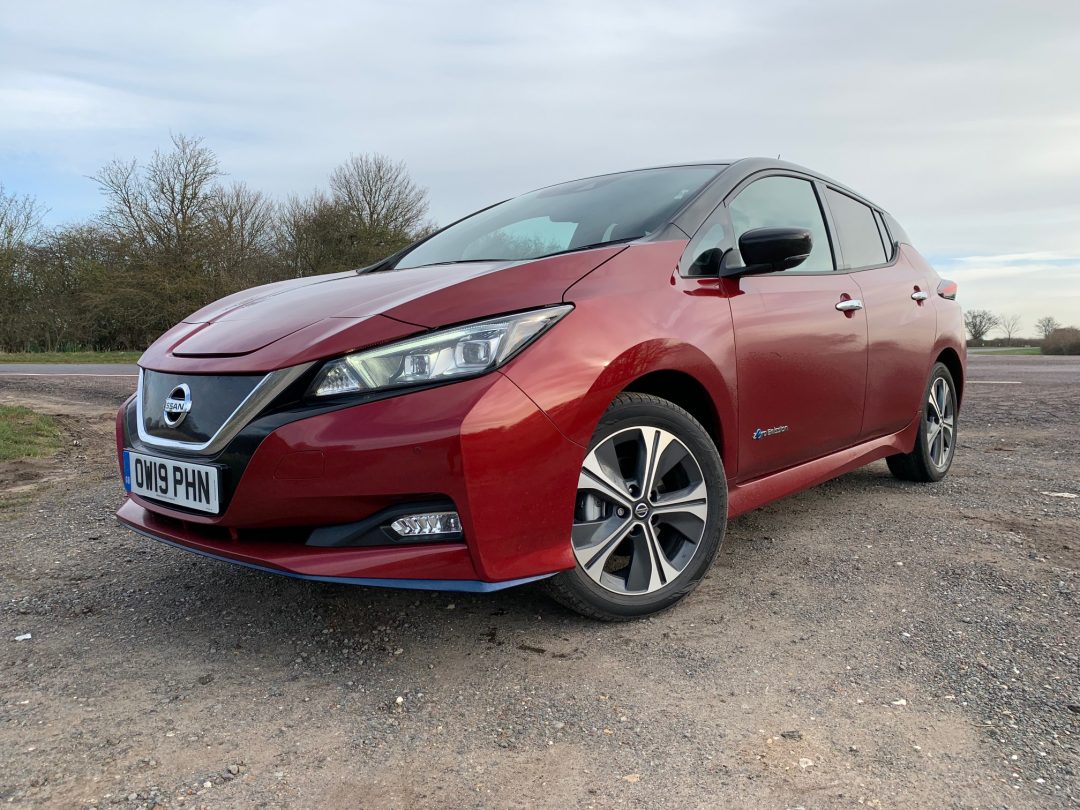
Nissan Leaf EV road test review: DAVID HOOPER finds out what it’s like to live with an electric car, and considers some of the pros and cons of owning one.
ACCORDING to the Government, fully electric cars are the future and by 2030 all new cars sold in the UK will have to be electric – that’s all we will be able to buy as the fossil-fuelled cars we know and love continue to be demonised before eventually being banned altogether.
There are passionate arguments for and against electric cars, mostly focusing on how “green” they really are when you take into account the whole life cycle, from mining the raw materials, to making the lithium batteries and then disposing of them at the end of their useful lives, not to mention how we generate the electricity which powers them today, although renewable energy is playing an increasingly important part in that.
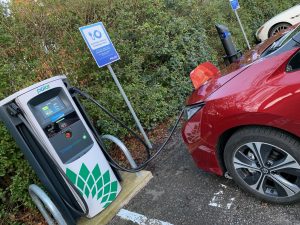
Then there are the issues of range, how far you can travel on a single charge before having to plug your car in for an hour or so before you can continue your journey. But we have to remember that this is just the start of the electric car journey and the internal combustion engine didn’t start off with what we have today. Talk to the motor industry, and most will tell you that hydrogen will be the ultimate answer. Hydrogen powered cars are also available now, but as things stand today, the national infrastructure for both is woefully inadequate and if the Government has a hope of hitting its target, it will need to invest heavily in electric vehicle infrastructure and solve the problems of how people who don’t have a driveway and park on the street will charge their electric car overnight.
However, electric vehicles are the here and now. More than 23 new fully electric models are due to go on sale in 2021, along with numerous plug-in hybrid versions of popular models.
After surviving unscathed after a week with a Plug-In Electric Hybrid Mitsubishi Outlander and despite clocking up five or six hundred miles in my average week, I decided to pluck up the courage to turn over a new Leaf for a few days and see what living with a fully electric car was really like.
With a Nissan Leaf, the future is here – now – and the 62kW version I tried (a smaller capacity 150PS 40kW version is also offered) has a real world range of 185 miles. Nissan quotes up to 225 miles, but in cold weather, heaters and electric seats reduce that before you turn a wheel. It also takes a bit longer to fully charge the battery in cold weather, but once you’re all charged up, you’re electric car adventure awaits.
The Nissan Leaf I tested costs £37,710 but the range starts from £29,845.
Forget the electrickery for a moment, and what you get for your money is a perfectly practical five-door family hatchback which will tick most boxes for most families’ daily use, but if that daily use involves lots of high mileage journeys, then an electric car probably isn’t for you… yet!
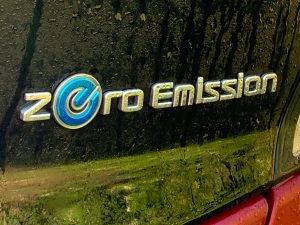
The first thing to do is “start” the car. This is done by pressing a button which brings the dashboard to life, but the lack of any engine noise is just weird at first. There are no gears, electric motors don’t have any, you simply select “D” for drive and off you go.
Once on the move, the Nissan Leaf drives pretty much like any conventional car. It is very well equipped and the example we’ve been testing included keyless entry, radar cruise control, a reversing camera, heated seats (including the rear ones) and a heated steering wheel.
You can program the car to warm itself up before you set off – a brilliant feature on frosty mornings – you can watch the car defrost itself as the interior warms up from the comfort of your home.
If you’ve never driven a fully electric car, you could be forgiven for thinking that they might be a bit slow, or even boring to drive. Wrong! On the contrary, this Leaf will blow away any cobwebs with a 0-62mph time of 7.3 Seconds and a potential top speed of 97mph. It’s quick off the lights too – the drivers of a few reasonably quick cars were surprised by its acceleration off a roundabout as they faded into the distance.
There are no gear changes to worry about, so the car just keeps accelerating at an impressively rapid pace, and with a low centre of gravity thanks to the weight of the batteries, its more than capable of putting a smile on the face of even the most sceptical petrolheads. That said, enthusiastic driving does destroy its potential range. On one 35-mile commute, I reduced its 97% full battery to just 70 – but it was fun!
There are also a couple of ways to add charge to the battery as you drive. You can select the “B” mode on the gear selector, which increases what you would normally describe as “engine braking” which gathers energy as the car slows down off the throttle. There is also something called the “e-brake” which does a similar thing, but slightly more fiercely.
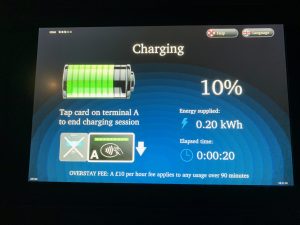
It means that with a bit of planning and looking well ahead you can drive the car by using only the accelerator pedal. As you reduce the pressure the car begins to slow down and even puts the brake lights on. I managed to complete a 60-mile trip without touch the brake pedal once!
Delving into the many screen displays available, I particularly liked a display which shows the car’s remaining range, or how far you could drive before having to stop to recharge it, which with around 200 miles at your disposal, can be a substantial area of the country.
However, driving beyond half the car’s range is a bit like an Apollo 13 mission – you know you can get there, but you’re not quite sure how you’ll get home again!
It invariably means having to find a public charging point which then presents you with whole new set of challenges. Some only have certain types of connectors, some are free to use, some have to be paid for and most have to accessed via an app on your phone, which means not only registering for the app, but in many cases registering a payment card – which will receive a fine if you overstay your welcome. It’s designed to stop people hogging charging points for too long, but can be a bit of a nuisance. I had to dash out of a pub on one occasion to move my car off the charging point, leaving a half-eaten meal to go cold!
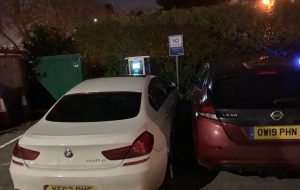
To compound the inconvenience, there are now many companies providing charging points and it’s no fun trying to register an app and your credit card details in a dark corner of a car park, which is where most of these things seem to be located, in the freezing cold and pouring rain!
There needs to be some standardisation – one payment card for any charger and one app!
To be fair, if I actually owned an electric car, rather than having just borrowed one for a few days, I would have a proper charger fitted to the house. Instead, I had to rely on a 13 amp plug, which can be plugged into any normal socket in the garage – but it takes 12 hours or more to recharge the car from around 20% of the battery remaining.
Another consideration, as some colleagues have found, is that as the battery capacity and therefore range increases, so does the length of time it takes to charge it.
To sum up then, electric cars work and they work as well as any other car, indeed better than some! If you don’t regularly drive further away from home than half the range of your electric car, you’ll be able to get home again without having to worry about charging it on a public charger.
And here’s another thought – while you might save on petrol, your take-away coffee bill will go up while you’re waiting for your car to charge – and don’t even think about the waistline with those cakes!
Rating: 




If you like this, read our review on the Mitsubishi Outlander PHEV
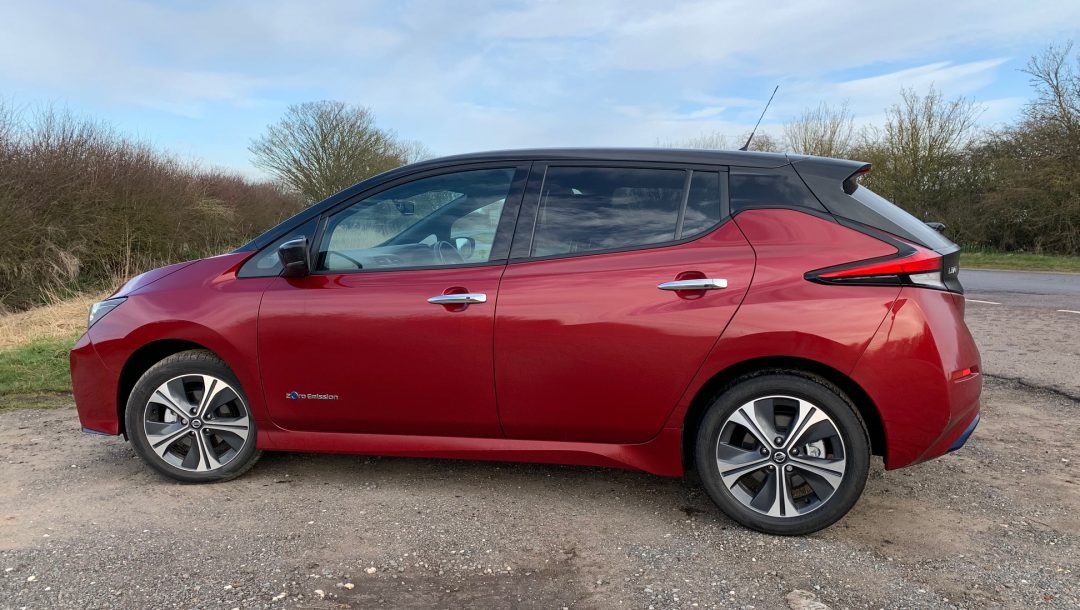
THE VITAL STATISTICS
MODEL: Nissan Leaf 62kW e+ Tekna
ENGINE: 217PS 62kWh electric motor, driving front wheels through an automatic gearbox.
PERFORMANCE: Top speed 97mph. 0-62mph in 7.3 secs.
RANGE: 185-200 miles.
CO2 EMISSIONS: 0 g/km.
INSURANCE: Group 21.
PRICE: £37,710
WARRANTY: 3 years/60,000 miles
WEBSITE: www.nissan.co.uk
• All data correct at time of publication.
